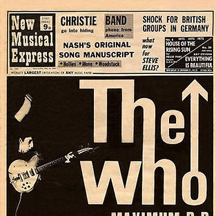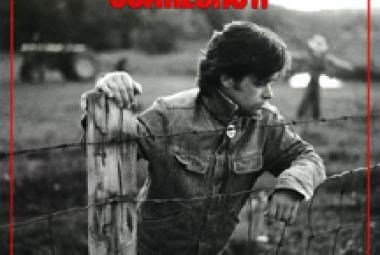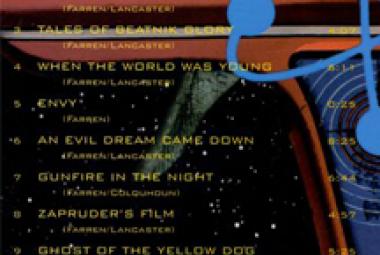New Musical Express (NME) is a British music journalism magazine published since 1949. It is largely associated with rock, alternative and indie music. It was the first British paper to include a singles chart, in the edition of 14 November 1952. In the 1970s it became the best-selling British music newspaper. During the period 1972 to 1976, it was particularly associated with gonzo journalism (self-involved reporting), then became closely associated with punk rock through the writings of Julie Burchill, Paul Morley and Tony Parsons. It started as a music newspaper, and gradually moved toward a magazine format during the 1980s and 1990s, changing from newsprint in 1998. (More from Wikipedia)
See Also:
● NME
● NME.com
The NME ad about the Klubs – which included a photo of the band in face paint like the Crazy World of Arthur Brown was using (their hit single “Fire” had come out earlier in 1968) – was deemed worthy of inclusion in the magazine edition.
Other songs that were recorded by the Klubs in that session are another psych killer “Indian Dreams” – three very different versions of this song are also included on the Midnight Love Cycle CD – and an R&B song called “Oh Baby”. The “A” side of the first single, “I Found the Sun” is a bit tamer but has the same wyld guitar work, soaring harmony vocals and fine songwriting that mark all of the band’s work. This song is backed on the 45 with “Ever Needed Someone”, a re-recording of one of their earlier Decca tracks, which has more of an old-school Merseybeat feel. Despite the aforementioned ad in New Musical Express, the fledgling Cam Records label could only place the single at local record stores in Liverpool, where sales were minimal.
(July 2013)
* * *
Along with many other figures from the underground press, Mick Farren moved to the influential New Musical Express (NME) in 1974. Quoting again from the Telegraph obituary: “Allowed free rein to explore the outer reaches of popular culture by its editor, Nick Logan, Farren turned in a series of memorable pieces on people such as the motorbike stunt-rider Evel Knievel and the avant-garde film director Kenneth Anger.
“In the summer of 1976, by which time the Sex Pistols were introducing Britain to punk, Farren’s NME piece headlined ‘The Titanic Sails At Dawn’ [again using a Bob Dylan lyric, this time from one of my all-time favorites, “Desolation Row”] was judged to have caught the mood among the generation of teenagers disaffected by giant stadium acts like the Rolling Stones and Led Zeppelin.”
(March 2014/1)
* * *
More generous praise can be found in the Wikipedia article. Reviewing a 1984 Certain General show at New York’s Pyramid club, the UK-based New Musical Express called the band “New York’s answer to [Echo and] the Bunnymen with a few [Jim] Morrison tendencies thrown in” [but with] “plenty of individuality and a lead singer full of passionate presence — agonized lyrics torn from twitching limbs”. The review concluded by observing that Certain General was “almost psychedelic in their unfettered spirit”. Bomp! Records – whose affiliated label Alive Records reissued November’s Heat in America in 1999 – has called them “NYC’s 80’s cult favorite”, while Rock & Folk identified Certain General as “the bridge between Television and Radiohead”.
(March 2015
* * *
In 1967, Elton John – then using his real name Reggie Dwight – answered an ad in the prominent British magazine New Musical Express by Ray Williams, a Liberty Records A&R man. (The initials stand for “artists and repertoire”; they are basically the people who shake the bushes looking for new talent). Bernie Taupin had answered the same ad; although neither artist was actually signed by Liberty Records, Ray Williams gave him Taupin’s telephone number.
(April 2015/1)
* * *















